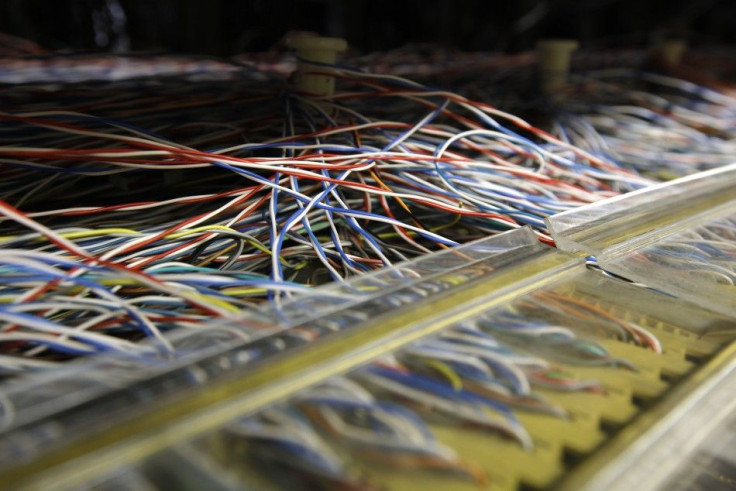Internet Kill Switch Not Possible In The U.S.

Since the Egyptian government shut down the Internet for days in the wake of protests, some have asked if the U.S. government could set up an Internet kill switch to cut off access -- either to stop people from communicating or protect the country from cyber attack.
Experts say the short answer is no. And even if the government could set up such a kill switch it would probably not be a good idea.
Concerns about U.S. government control of the Internet started to appear just before the unrest in Egypt broke out, with a cyber security bill called the Protecting Cyberspace as a National Asset Act. It says that the government can declare a cyber security emergency and assert control over networks, and even order them disconnected.
It would be almost impossible for the government to shut down the whole Internet in the U.S. The reason is that the Internet is not one network, but many. There are several companies that maintain fiber optic networks, for example, and some of those are foreign-owned. The Metropolitan Area Exchange, an Internet exchange point that covers the East Coast, has 19 member carriers. Shutting down every avenue to the Internet, given the number of service providers, would be nearly impossible to do -- and very expensive.
When Egypt lost access to the Internet, it also cut off access of its stock market to the rest of the world. Trading in the U.S. is even more dependent on Internet connections.
When the World Trade Center was destroyed on Sept. 11, 2001, it did not affect Internet connections in most of the country. But underneath the World Trade Center in lower Manhattan was a huge network of fiber optic cables that was the communications infrastructure for much of the area. Cutting those connections was one reason the markets shut down for four days, even though the stock market buildings themselves were relatively undamaged. The Internet cutoff in Egypt probably cost the country billions in lost trade. In the U.S. the effect would be that much greater.
An attempt to shut off access to the outside world (and leave Internet traffic operating within the U.S.), as is done in China, would be a difficult proposition.
It's effectively impossible in the U.S., said Patrick Gilmore, chief network architect at Akamai. It would take hundreds of millions of dollars to implement.
Even physically cutting the connections would be difficult to do at best. For example, the former Port Authority building at 111 Eighth Avenue in New York is a carrier hotel contains miles of fiber optic cable connecting telecom companies and Internet Service providers. Google recently purchased it for $1.77 billion.
A large percentage of the U.S. Internet traffic passes through it, but even if it were shut down, the building is not the only one of its kind on the East Coast, let alone in the country as a whole. There are similar buildings in Seattle, Boston, Pittsburgh, and other cities.
What about cutting off government networks discretely to protect them? Hemanshu Nigam, a former White House technology advisor and founder of SSP Blue, a consulting firm that helps clients secure online assets, says that method is not terribly effective. There are several defenses against distributed denial of service (DDoS) attacks that reduce the need for such a kill switch.
In order to shut off the Internet, certain conditions have to be met. First, there has to be a small enough number of providers that a local government can stop them all. Second, the number of pipes into the country has to be very limited. In Egypt there were only a half dozen, and there were very few providers inside the country. Those two conditions made it much easier for the Mubarak government to take the country out of the network.
There are other, better methods for censoring the Internet, should any nation decide to do so, said Gilmore. In Iran, there is a vibrant Internet, but there are few connections outside the country. The same is true of China, where the government was able to block search results related to Egypt's protests. In both of those cases an authoritarian government can force private carriers to comply.
James Cowie, chief technology officer of Renesys, an information technology consultancy, notes that in any country, ISPs and carriers are always vulnerable to some extent. It's the reality of licensed telecommunications, he said. But cutting off the Internet in the U.S. would do too much economic damage. It would be like getting rid of a carjacker by driving off a bridge.
To contact the reporter responsible for this story call (646) 461 6917 or email j.emspak@ibtimes.com.
© Copyright IBTimes 2024. All rights reserved.




















